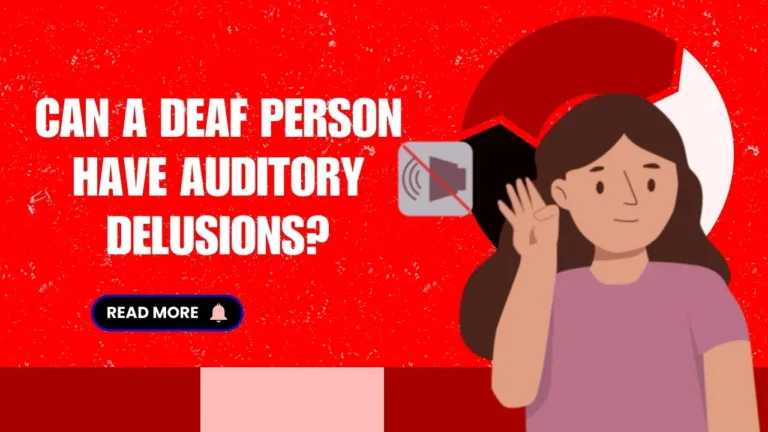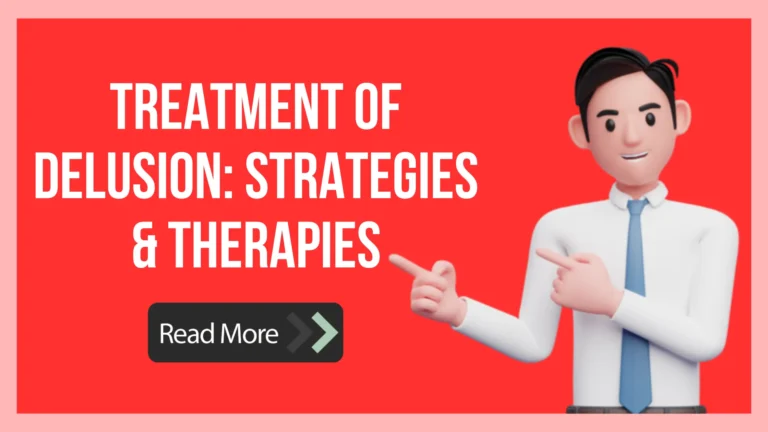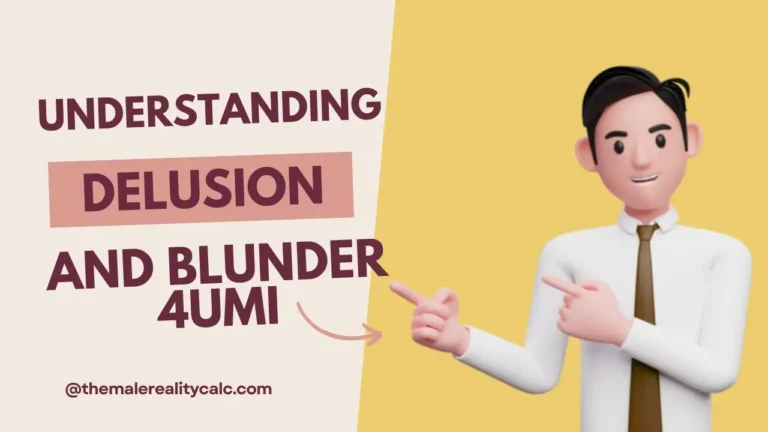How Do You Manage To Stay So Positive Delusion In 2024

How Do You Manage To Stay So Positive Delusion? Delusions are false beliefs not based on reality and are often resistant to evidence or logic. They are a common symptom of psychosis, a mental disorder that affects how people perceive and interpret the world around them.
People with psychosis may experience hallucinations, paranoia, disorganized thinking, or impaired functioning. Delusions can significantly impact their quality of life, relationships, and well-being.
Some of the most common types of delusions are:
- Persecutory delusions: The belief that one is being harmed, threatened, or persecuted by someone or something, such as the government, aliens, or enemies.
- Grandiose delusions: The belief that one has exceptional abilities, talents, or achievements or that one is a famous or important person, such as a celebrity, a religious figure, or a superhero.
- Somatic delusions: The belief that one’s body or appearance is abnormal, diseased, or changed in some way, such as having a foreign object inside, being infected, or being pregnant.
- Referential delusions: The belief that certain events, objects, or messages have a special meaning or significance for oneself, such as hidden codes, signs, or symbols.
- Erotomanic delusions: The belief that someone, usually of higher status or fame, is in love with oneself or that one has a special relationship with them, such as a spouse, a soulmate, or a secret admirer.
You can also read more about Treatment Of Delusion
Delusions can be very distressing and isolating for the person who experiences them and their loved ones and caregivers. They can also interfere with coping with everyday challenges like work, school, or social activities. Therefore, it is important to learn how to stay positive despite delusions and seek help and support when needed. This article will provide some strategies and tips to help you to find out How Do You Manage To Stay So Positive Delusion?
How to Recognize and Challenge Your Delusions
Recognizing and challenging them is one of the first steps to staying positive despite delusions. This can help you reduce their intensity and frequency and gain more control over your thoughts and emotions. Here are some ways to do this:
Keep a journal
Writing down your thoughts and feelings can help you identify your delusions and track their patterns. You can also use your journal to record any evidence that supports or contradicts your delusions and to evaluate how realistic and rational they are.
Seek feedback
Talking to someone you trust, such as a friend, a family member, or a therapist, can help you gain a different perspective and insight into your delusions. They can also provide you with emotional support and encouragement and help you cope with any stress or anxiety that your delusions may cause.
Use reality testing
Reality testing is a technique that involves comparing your beliefs with objective facts and observations. You can ask yourself questions such as: Is there any proof for my delusion? What are the alternative explanations for what I see or hear? How likely is it that my delusion is true? How do other people view the same situation?
You can also read more about Effects Of Male Delusion
Seek professional help
Suppose your delusions are severe, persistent, or impairing your functioning. In that case, you may benefit from seeking professional help from a mental health specialist, such as a psychiatrist, a psychologist, or a counselor.
They can diagnose your condition, prescribe medication, and provide psychotherapy, such as cognitive-behavioral therapy (CBT), which can help you challenge and change your delusions and improve your coping skills.

How to Cope with the Emotional Impact of Delusions
Another step to managing to stay positive despite delusions is to cope with the emotional impact that they may have on you. Delusions can cause a range of negative emotions, such as fear, anger, sadness, guilt, or shame. These emotions can affect your mood, self-esteem, and motivation and make you feel hopeless, helpless, or worthless. Therefore, learning how to deal with these emotions healthily and constructively is important. Here are some coping skills that you can try:
Breathing exercises
Breathing exercises can help you calm your mind and body and reduce the effects of stress and anxiety. You can practice deep breathing, which involves inhaling slowly and deeply through your nose and exhaling slowly and fully through your mouth.
You can also try other breathing techniques, such as square breathing, which involves inhaling for four seconds, holding for four seconds, exhaling for four seconds, holding for four seconds, and repeating the cycle.
You can also read more about What Is Female Delusion?
Relaxation techniques
Relaxation techniques can help you relax your muscles, release tension, and improve your mood and well-being. You can practice progressive muscle relaxation, which involves tensing and relaxing different muscle groups, starting from your toes and moving up to your head.
You can also try other relaxation techniques, such as meditation, yoga, or tai chi, which can help you focus on your breath, body, or surroundings and achieve calmness and awareness.
Positive affirmations
Positive affirmations are statements you say to yourself to boost your confidence and self-esteem and to counteract any negative thoughts or beliefs you may have. You can use positive affirmations, such as “I am strong and capable,” “I can overcome any challenge,” or “I deserve happiness and peace,” to reinforce your positive qualities and achievements and to inspire yourself to pursue your goals and dreams.
How to Maintain a Positive Outlook and Well-Being
The final step to staying positive despite delusions is maintaining a positive outlook and well-being. Staying positive can benefit your mental and physical health, as it can enhance your resilience, optimism, and happiness and reduce your risk of depression, anxiety, and chronic diseases. Here are some ways to boost your positivity and well-being:
Don’t forget to learn more about How To Deal With Insecurity In A Relationship?
Gratitude
Gratitude is the practice of expressing appreciation and thankfulness for what you have and what you experience in life. You can practice gratitude by keeping a gratitude journal, where you write down three things you are grateful for every day, or by expressing your gratitude to someone who has helped or made you happy. Gratitude can help you focus on the positive aspects of your life and increase your satisfaction and joy.
Optimism
Optimism is the tendency to expect positive outcomes and to view challenges as opportunities for growth and learning. You can practice optimism by reframing your negative thoughts and beliefs into more positive and realistic ones or by visualizing your desired goals and outcomes. Optimism can help you cope with stress and adversity and motivate you to pursue your aspirations and passions.
Humor
Humor is finding amusement and laughter, even in difficult or unpleasant situations. You can practice humor by watching or reading something funny, such as a comedy show, a cartoon, or a joke, or by sharing your humor with others, such as a friend, a family member, or a therapist. Humor can help you lighten your mood and perspective and reduce tension and distress.
In addition to boosting your positivity, you should also take care of your well-being, which involves your physical, mental, emotional, and social health. Here are some suggestions to improve your well-being:
Social support
Social support is the network of people who care about you and can provide practical, emotional, or informational help. You can improve your social support by reaching out to your friends, family, or community or joining a support group, a club, or a hobby group. Social support can help you feel less lonely and isolated and more connected and valued.
Don’t forget to learn more about What Are The Stages Of Delusion?
Hobbies
Hobbies are activities that you enjoy doing and that make you happy. You can improve your well-being by regularly engaging in your hobbies or exploring new hobbies that interest you. Hobbies can help you express yourself and your creativity and enhance your skills and confidence.
Self-care
Self-care is the practice of taking care of your own needs and well-being. You can improve your self-care by following a healthy lifestyle, such as eating well, sleeping enough, exercising regularly, and avoiding alcohol and drugs.
Final Thoughts On How Do You Manage To Stay So Positive Delusion
In conclusion, despite the difficulties that delusions can bring, it is important to maintain a positive outlook for one’s well-being. Identifying and challenging delusions, seeking support, and using coping methods such as breathing exercises, relaxation, and positive affirmations can help reduce their impact.
Furthermore, having a positive attitude through gratitude, optimism, and humor can increase resilience and happiness. Prioritizing self-care and nurturing social connections can also improve overall well-being, resulting in a balanced and fulfilling life despite delusions.






